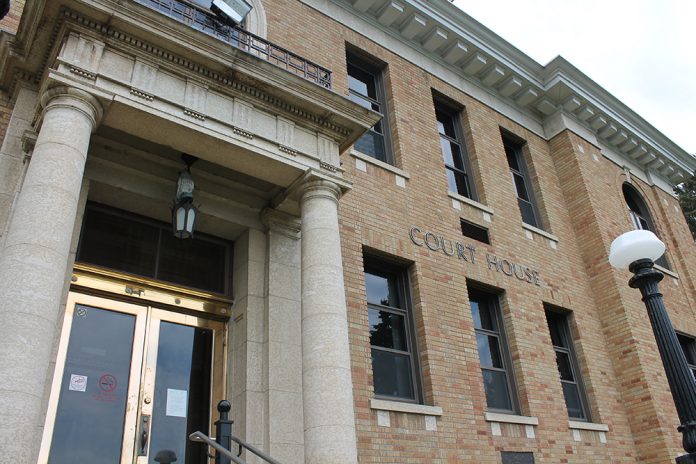Interviews Prince Albert police conducted with Marrissa Bird in January and June of 2018 were allowed to stand as evidence at the Court of Queen’s Bench on Friday.
Police conducted three interviews with Bird during their investigation, but Crown prosecutor Shawn Blackman sought to have only the first and third entered into evidence. Bird faces first degree murder charges in connection with Duane Brett Ledoux’s death in August 2017.
Madam Justice Heather MacMillan-Brown made the ruling Friday afternoon, but won’t give her written decision until a later date.
Friday was the last day of testimony at the Court of Queen’s Bench. Bird will not appear in court again until the Crown and defence make their final arguments on July 23. Written submissions from both parties are due in June.
Blackman opened the proceedings by defending the decision to leave the second interview out of evidence. He said there were gaps of at least two months between all interviews, which gave police time to gather additional evidence and interview more suspects. He argued police did not use statements from the second interview in April to convince Bird to answer questions in June.
Blackman also argued police were professional and respectful during the interviews, and never denied Bird food, water, medication or access to legal counsel while in custody.
The Crown argued Bird communicated competently during both interviews, and seemed to understand the gravity of the situation. He pointed out that even when Bird became emotional, she was able to regain her composure, and often challenged police to produce evidence to back up their claims.
Blackman also defended the police decision to give Bird cigarettes during the interview. He told the court police can be accused of pressuring an individual to confess if they don’t give out cigarettes, but being accused of inducement if they do. Blackman argued that if giving out cigarettes is an inducement, the effect is minimal.
“There’s no trickery on the part of police,” he said.
Defence lawyer Patrick McDougall argued the January and June interviews were too closely connected with the third interview from April 2018, which the Crown declined to submit after police testified that Bird may have been impaired at the time. There were also concerns surrounding the warrant police used, and whether it allowed them to interview her about the Ledoux investigation.
McDougall told the court police were respectful during the investigation, but very aggressive in their questioning. He argued those tactics turned the meetings into interrogations, not interviews, and described Bird as a fragile and frightened suspect who, at times, was not giving statements voluntarily.
McDougall was especially critical of investigators’ decision to shuffle Bird between “hard” and “soft” interview rooms, and argued officers plied her with cigarettes in an attempt to get a confession.
He also questioned the decision to have two Caucasian officers interview Bird, who is Indigenous, at the same time when showing her police evidence. McDougall argued the decision created an oppressive atmosphere, which should be taken into account given the background of colonial oppression Indigenous people like Bird come from.
McDougall also raised concerns about whether Bird received medication she was taking for depression. In the third and final interview, Bird tells police multiple times she’s not feeling well, without police asking her if she wants or needs that medication. McDougall said those concerns should have made officers think about pausing the interview.
“I don’t think these (Bird’s) statements can be found to be entirely voluntary,” he said.
Testimony from Wednesday showed police were aware Bird needed medication by 9 p.m. on the day of the third interview, since one officer travelled to Pine Grove Correctional Centre to pick it up. Video testimony shows that interview ended before 9 p.m.
In response, the Crown argued there was no evidence of racism in the police investigation, and argued Bird used smoke breaks as a way to halt the interviews when they became uncomfortable.
“The officers treated her with respect throughout (the process,)” Blackman said. “I don’t think there was anything racially toned in that interview.


